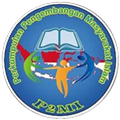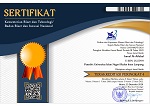PEMBERDAYAAN KORBAN PENYALAHGUNAAN NARKOBA
Abstract
Keywords
Full Text:
PDFReferences
A. Mudjad Mahali, Asbabun Nuzul Study Pendalaman Al-Qur’an Surat Al –Baqarah- An nas, Jakarta: PT. Raja Grafindo Persada
Abu Huraerah, Pengorganisasian dan Pengembangan Masyarakat, Bandung: Humaniora 2008
Ahsin W. Al- Hafidz, Fikih Kesehatan, Jakarta: Amzah, 2007
Alfitri, Community Developmen , Teori dan Aplikasi, Yogyakarta: Pustaka
Aprillia Theresa, Pembangunan Berbasis Masyarakat, Bandung: Alfabeta, 2014
BNN, Pedoman Pencegahan Penyalahgunaan Naroba Bagi Pemuda, Jakarta: 2004
Bukhari, Pemberdayaan dalam Al –Qur’an dan Hadist Padang: PascaSarjana UIN IB PMI, 2017
Departemen Agama RI Al-Qur’an dan Terjemahan, Bandung: Diponegoro, 2000
Departemen Agama RI, Al-Quran dan Terjemahannya, Surabaya: Edisi Revisi, 1989
Ginda Harahap, Koprasi dan Pemberdayaan Masyarakat, Depok: PT Raja Grafindo Persada, 2107
Isbandi Rukminto Adi, Intervensi Komunitas Pengembangan Masyarakat Sebagai Upaya Pemberdayaan Masyarakat, Jakarta: PT. Raja Grafindo Persada, 2008
Jim Ife, et. al., Community Development Alternatif Pengembangan Masyarakat di Era Globalisasi, Terj. Sastrawan Manullang, et.al. Yogyakarta: Pustaka Pelajar, 2008
Kamus Besar Bahasa Indonesia, Spiritual 2019, http://kbbi.web.id/spiritual.
Mubyartono, Membangun Sistem Ekonomi, Yogyakarta: BPFE, 2000
Nani Machendrawaty dan Agus Ahmad Safei, Pengembangan Masyarkat Islam : Dari Sosiologi, Strategi Sampai Tradisi, Bandung: PT Remaja Rosda Karya, 2001
Oos, M. Anwas, Pemberdayaan Masyarakat di Era Global, Bandung: Alfabeta, 2014
Samsuridjal, Keluarga Anti Narkoba, Jakarta: Penerbit Buku Kompas, 2006
Sayyid Sabiq, Fiqih Sunnah, Bandung: PT.Al-Ma’arif, 1988
Taubani, Dimensi Spritual, Padang: Media Explorasi, 2004
Totok Mardikanto, Pemberdayaan Masyarakat dalam Perspektif Kebijakan Publik, Bandung: Alfabeta, 2013
Undang-undang Narkotika, Bandung: Citra Umbara, 2005
DOI: http://dx.doi.org/10.24042/ijpmi.v12i2.5999
Refbacks
- There are currently no refbacks.
Jurnal Ijtimaiyya is licensed under a Creative Commons Attribution-ShareAlike 4.0 International License.





1.png)
11.png)
.png)



